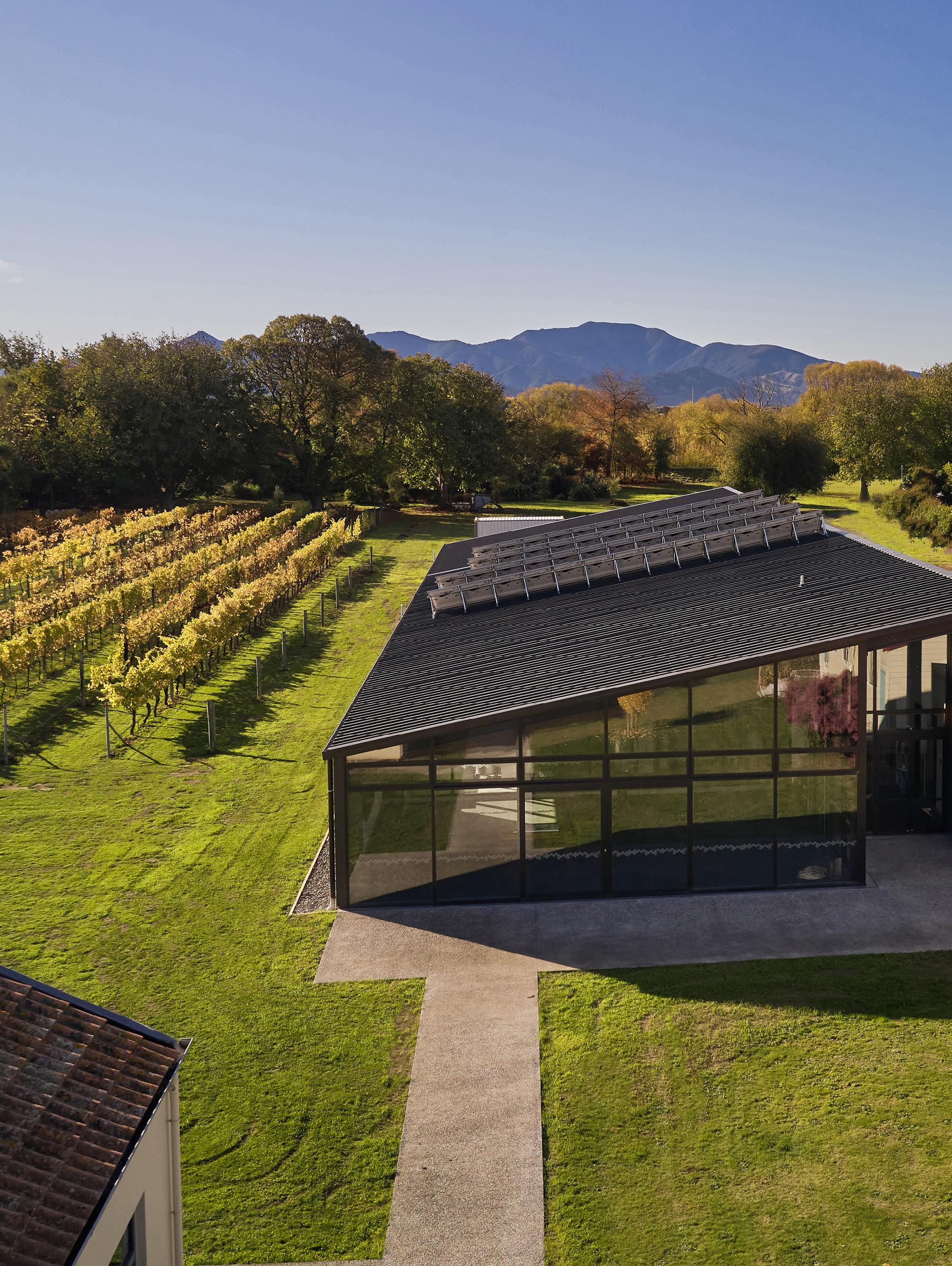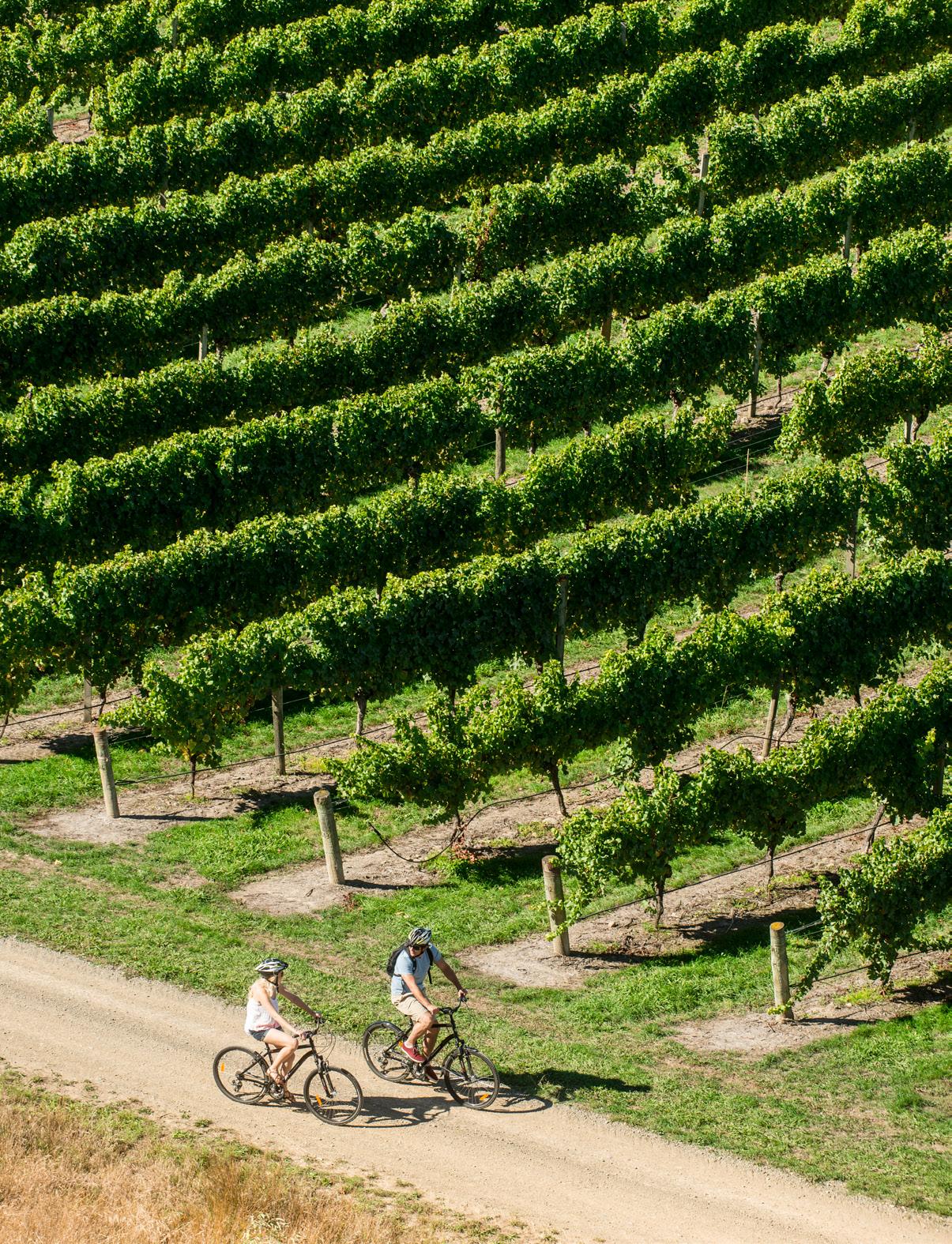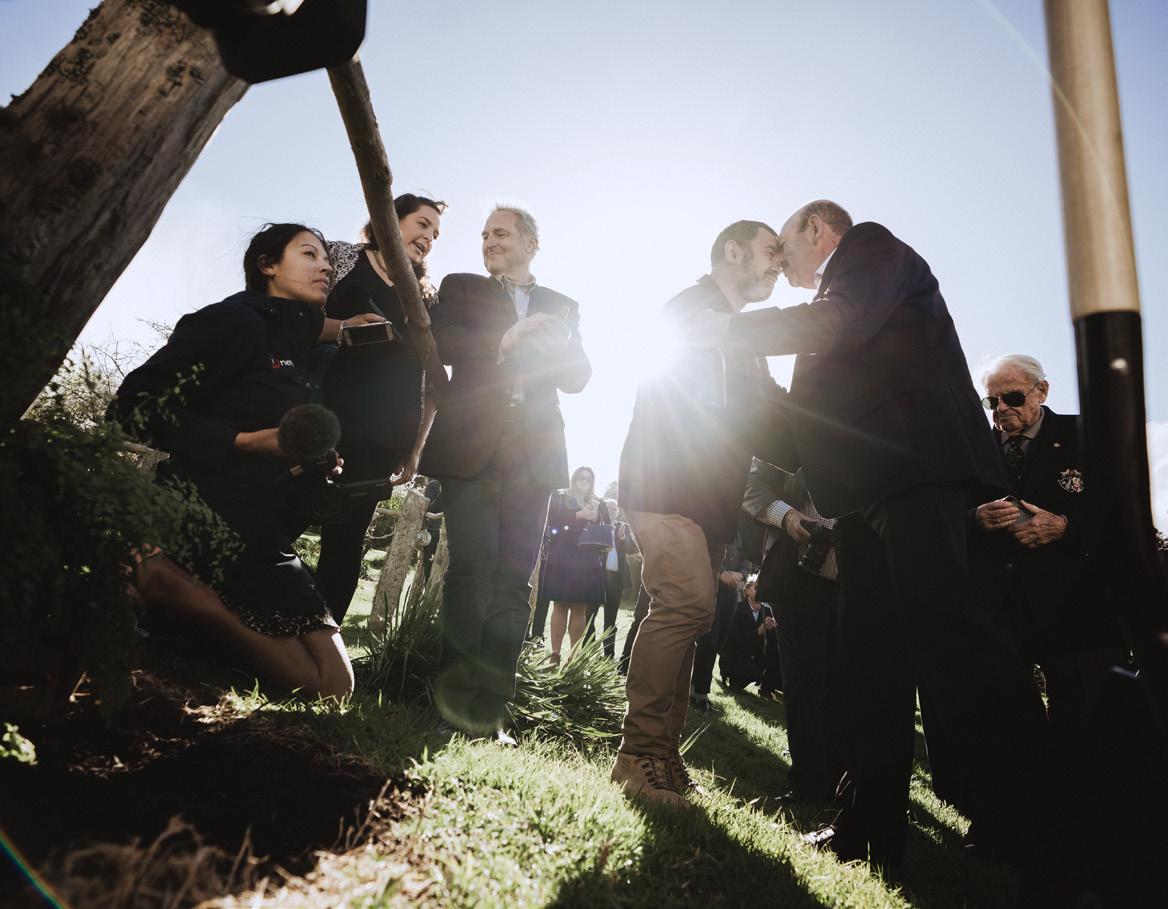
7 minute read
Chair’s Report
NZW 200 YEARS CELEBRATION
Perhaps more than any other year in recent times, this was a year of two halves.
Advertisement
During the first half of the year the industry celebrated its past, and looked ahead with optimism. The second half reminded us just how unpredictable the world can be, how crucial it is to plan for the unexpected, and react with agility when the unexpected arrives.
In September we celebrated the 200th anniversary of the day on which the very first grape vines were planted into New Zealand soils, by Reverend Samuel Marsden at Kerikeri in the Bay of Islands. Over 100 winegrowers and others commemorated the milestone with an event at the Waitangi Treaty Grounds and a ceremony at the historic Stone Store at Kerikeri, where a new vine was planted to mark the beginning of the next 200 years.
This was a chance to acknowledge many of the industry’s pioneers, and reflect on the difficult journey from colonial outpost through six o’clock closing, to painful economic reforms, and ultimately to a thriving New Zealand wine industry where - every second of everyday - 80 glasses of its distinctive wine are sold somewhere in the world.
A milestone was reached in February, with the opening of the Bragato Research Institute’s Research Winery. This new facility provides us a base from which to set the national research agenda, trial world-first technologies, conduct commercial trials, and connect educators and students to science and industry. Our major levy-funded research projects focus on sustainability (through our vineyard ecosystems pest & disease project), diversification (through our lighter wines project) and quality (through our Pinot Noir project). A potential new project to develop new more resilient Sauvignon Blanc vines is under development.
But these positive notes cannot obscure the turmoil that the COVID-19 coronavirus pandemic has inflicted since it hit the world. In New Zealand, we were privileged to be able to complete our grape harvest as “essential businesses”, but the effort and stress involved in doing so safely was high. Our total 2020 harvest of 457,000 tonnes reflects the near perfect growing conditions experienced in most of the country, and a 2% increase in planted area to 39,935 hectares. The successful harvest was good news for growers who have only one opportunity each year to generate the income to carry them through the next 12 months.
For wineries, the impact on sales of the lockdown and the COVID-19 response has been highly variable. Positively, for those wineries whose focus is on supermarket and ‘big’ retail channels, sales have increased. This reflects the positive reputation that New Zealand wines have with consumers and retailers.
For other wine businesses the story is more challenging. Physical distancing measures have either halted or significantly slowed on-premise u

consumption in many markets, but online sales have surged, whilst closure of the border has cut-off the flow of overseas visitors to cellar doors. For those New Zealand wineries whose markets and channels are focussed on tourism or onpremise, sales and orders have fallen significantly.
Some of these impacts were tempered by a brief rise in domestic New Zealand tourism, with regions close to major centres now catering to a surge of Kiwis exploring their own backyard. But the reemergence of community transmission means regions more dependent on tourists will be hurting, and we have initiated some economic research to better understand the likely impacts on smaller wineries, and what government support may be needed.
It is too early to say how the shock of a pandemic will alter consumers’ habits, but many are likely to reflect on their values and priorities and may adjust their purchasing decisions accordingly. Ultimately, how New Zealand wine is perceived by the consumer in a post-Covid world will depend on the core fundamentals that research tells us have underpinned our success to date: our reputation, our commitment to sustainability, and the diversity of our offering.
Our reputation was enhanced by the exemplary way winegrowers responded to the COVID-19 crisis, which cemented our place within government circles as an industry that can be relied on. During the Alert Level 4 & 3 periods, we had regular calls with Ministers and senior government officials. They made it clear that the way individual members were responding, and the way New Zealand Winegrowers (NZW) was leading the wine sector response, was precisely what they were looking for.
Similarly, although we set up a Safe Harvest Hotline which could be used by the public or members to report any potential breaches of COVID-19 measures or issues with workers, we were pleased that each of the issues reported had a satisfactory explanation, or was readily and willingly resolved.
Recognising the financial strain brought by COVID-19, the NZW Board made the decision to lower this coming year’s levy rates back to where they were before last year’s 10% increase. In addition, the Board decided to fund the coming year’s Sustainable Winegrowing New Zealand (SWNZ) costs from levy funding, which highlights the importance the Board places on SWNZ and our commitment to sustainability.
Similarly, the strength of our regional winegrower associations is important to the diversity and sustainability of our industry. We are holding more regular meetings with regional chairs, and believe these improved relationships between NZW and the regional associations will help ensure more effective collaboration on key industry issues.
COVID-19 impacted the way we told the New Zealand wine story to trade and consumers, and kept our own members informed. Many promotional

MARLBOROUGHNZ.COM

NZW 200 YEARS CELEBRATION
events have needed to be cancelled, and with borders closed, our international visitor programme has been suspended. To meet members’ needs in this changed environment, we have responded with a refocused marketing effort, including digital options such as webinars and a more targeted suite of information.
As we look to the future it is clear that, for the short term at least, our sector is going to need to be more self-sufficient in terms of personnel, as access to offshore workers will be limited by border restrictions. With winter pruning nearly complete, our focus is the workforce for vintage 2021. We are working with government agencies to attract new workers to our sector to ensure we have the personnel in place to bring in the 2021 crop.
We are fortunate we already have programmes in place to support our New Zealand based workforce. This year we held the Women in Wine mentoring programme for the second year, and due to popular demand added a NZW mentoring programme, available to all young people irrespective of gender. We held our first Young Leaders’ Forum to bring together and challenge twenty winegrowers from around the country, and both our Young Winemaker of the Year and Young Viticulturist of the Year Competitions are attracting an excellent calibre of contestant.
Despite the challenges of the past 12 months, in the year ended 30 June 2020 our industry managed to achieve record exports totalling $1.92 billion, up 6% on last year and domestic sales of around $500 million.
Looking forward it seems likely that New Zealand’s borders will be largely closed for the coming year. We will be forced to re-think parts of our workforce, re-imagine our tourism activities, and cope with what seems likely to be a global recession.
For some grape and wine businesses, the outlook may be challenging. But as an industry, we will get through it. By investing in the New Zealand wine category, by focussing on good business practices, with good leadership and by keeping our eye on the fundamentals of our past and current success – our reputation, our diversity and our sustainability - we will build a strong foundation from which to continue to grow, and expand the global presence of New Zealand wine.
In conclusion I want to acknowledge the sterling efforts of our CEO and staff particularly during the period of Covid lockdown and subsequent. The initial effort to ensure we could operate as essential businesses followed by the constant flow of information to help ensure the safety of members and their staff during vintage was no small task. Working from home, reduced hours, reliance on zoom meetings and the absence of the “water cooler” conversations applied additional pressures and that they have shepherded our industry through in these circumstances deserves all our appreciation.
Their challenges and those of the Board are by no means over, but our reputation, diversity and sustainability put us in good stead to navigate the turbulent waters ahead.





